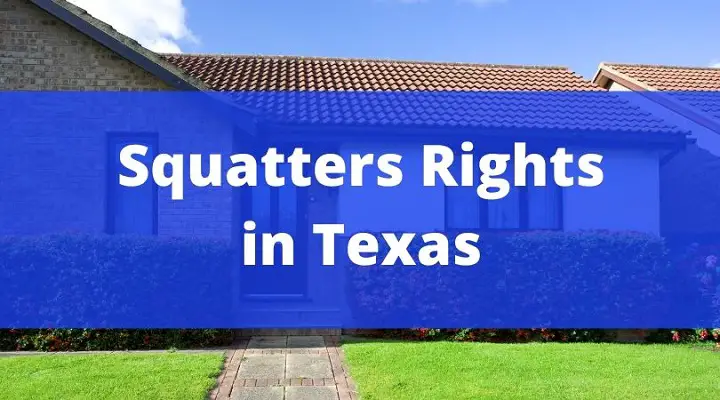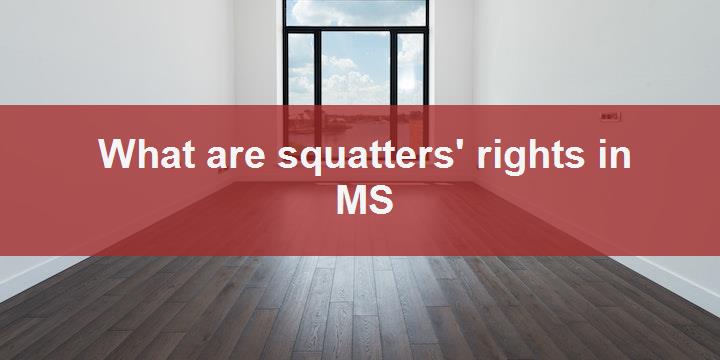Squatters may take possession of a property, without the knowledge or consent of the owner. They may occupy the property, use it as a residence, and even claim ownership through adverse possession. However, in Texas, state laws are strict when it comes to protecting the rights of property owners. So, what exactly are squatters rights in Texas? In this article, we’ll explore the legal framework surrounding squatters, their rights and limitations, and what property owners can do to protect their rights. Whether you’re a property owner or a squatter, this article will provide valuable insights into Texas’ squatter laws.
Squatters rights in Texas are an important legal concept that can affect both property owners and tenants. Squatters may gain legal rights to a property after living there for a certain period of time. In Texas, the law generally recognizes a squatter’s right to claim properties that have been abandoned, unused or vacant. However, it is important to note that squatters in Texas do not have the same rights as a property owner or tenant. To protect your property rights, property owners in Texas should take quick action against squatters by evicting them or filing a lawsuit. Additionally, tenants should always report any incidents of squatting to their landlord or property management company immediately.
What is the squatting/squatter?
Squatting refers to the act of living in an abandoned or unoccupied property without the owner’s legal permission. A squatter is a person who occupies such buildings and sometimes public land, without any legal authorization or license to do so. Squatting is considered a controversial practice as there are various ethical and legal issues associated with it. While some people squat due to economic reasons, such as homelessness or lack of affordable housing, others do it as a political statement against property rights and capitalism. In most countries, squatting is illegal, and squatters are often evicted by authorities, but in some places, it is tolerated, and squatters have been able to establish lasting communities.
What is an example of a squatter?
A squatter is someone who occupies a property or land without legal ownership or permission. For example, suppose a person begins to live in an abandoned building without any right or title to the property. In that case, that individual is considered a squatter. Another example could be a person who sets up a makeshift residence on public land without authorization from the relevant authorities. Squatting is often viewed as an act of protest or necessity for individuals who cannot afford to purchase or rent a home legally. However, it is also seen as a violation of property rights and is therefore often illegal.
What is Adverse possession in Texas?
Adverse Possession is an interesting and not well-known legal concept in the state of Texas. Broadly defined, it gives the title of property to someone who has occupied, maintained, and made use of a property continuously, openly, and without objection from the owner, for a certain period of time. In Texas, the statute of limitations for this claim is 10 years, meaning that someone who has occupied a property for a decade can make a claim for ownership, provided they meet certain requirements. These include the property needing to be under their control, their being visible or open use of the property, and possession that is hostile, meaning that they did not have permission to use the land, but used it anyway. It is important to note that while this law can be used to acquire a claim to a property, it does not supersede the rights of any other owners and is thus subject to challenge or scrutiny in court if challenged by rightful owners, especially if there are questions around the true nature of the original ownership or permitted use of the property.
Is it legal to squat in Texas?
Squatting in Texas is illegal under the state law. By squatter, it means unauthorized occupation of someone else’s property. If someone occupies a property that they have no legal right to, they are considered squatters. Texas law considers a person who trespasses on someone else’s property and does not have lawful permission, as someone who’s committing a criminal offense. The owner of the property or the rightful tenant can take legal action against such persons. Anyone found guilty of squatting can be charged with criminal trespass, and face fines, imprisonment, or both. Thus, it is essential to obtain legal permission from property owners or tenants before occupying any property in Texas.
Can police remove squatters in Texas?
Yes, police can remove squatters in Texas if the property owner serves them with the proper notice and obtains a court order for eviction. While squatters technically have some rights under Texas law, including protections against physical force and harassment, they are not entitled to occupy someone else’s property without permission. The legal process to remove squatters typically involves filing a civil lawsuit and attending a hearing to obtain a judgment of possession. Once the judgment is obtained, the property owner can request a writ of possession, which allows law enforcement officials to physically remove the squatters if they refuse to leave voluntarily. It is important for property owners to follow the proper legal procedures to avoid any potential liability for unlawful eviction or other legal issues.
How to evict squatter in Texas?
To evict a squatter in Texas, you need to follow the legal process of eviction. First and foremost, you need to provide a written notice to the squatter stating that you want them to leave your property. The written notice must be delivered to the squatter in person or posted on the door of the property. After the notice period expires, you can file an eviction lawsuit in court. The court will then issue a writ of possession, which allows you to remove the squatter from your property. However, you cannot use force to evict the squatter. You need to obtain a writ of possession from the court and hire a law enforcement officer to execute the writ. Once the writ of possession has been executed and the squatter has vacated the property, you can change the locks and regain possession of your property. It is important to note that the eviction process can be lengthy, and it may take several weeks or months to evict the squatter. Therefore, it is recommended to seek legal advice and assistance to ensure that the eviction process is conducted lawfully and effectively.
FAQ
Q: What are squatters rights in Texas?
A: Squatters rights in Texas are legal principles that allow individuals who have unlawfully occupied a property for a certain period of time to claim ownership of that property.
Q: How long can a squatter claim ownership of a property in Texas?
A: In Texas, a squatter can claim ownership of a property through adverse possession if they have continuously occupied the property for at least 10 years and met other requirements such as paying property taxes and improving the property.
Q: Can a squatter be evicted in Texas?
A: Yes, a squatter in Texas can be evicted by the legal owner of the property. However, the process may be more complicated and time-consuming due to the squatters’ claimed rights to the property.
Q: Is it legal to squat in abandoned properties in Texas?
A: No, it is not legal to squat in abandoned properties in Texas. Squatting still constitutes trespassing and is punishable by law.
Q: What should I do if I suspect that a squatter has occupied my property in Texas?
A: If you suspect that a squatter has occupied your property in Texas, you should immediately consult with a real estate attorney to explore your options. The attorney can help you understand your legal rights and obligations and assist you in evicting the squatter if necessary.
Also reading




